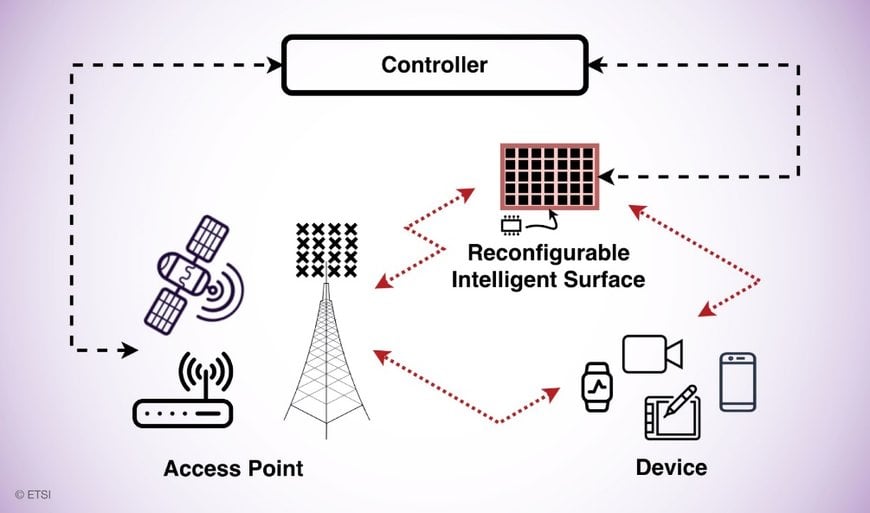www.industry-asia-pacific.com
05
'21
Written on Modified on
ETSI launches a new group on Reconfigurable Intelligent Surfaces
Improving network performance with cost-effective, low-power and sustainable technology for future wireless systems.

ETSI, which produces globally applicable standards for ICT, has launched a new Industry Specification Group on Reconfigurable Intelligent Surfaces (ISG RIS). The group has been created to review and establish global standardization for RIS technology.
RIS is a new type of system node leveraging smart radio surfaces with thousands of small antennas or metamaterial elements to dynamically shape and control radio signals in a goal-oriented manner. The technology will effectively turn the wireless environment into a service, inspiring a host of new use cases. These include enhancing key-performance-indicators for various systems such as coverage and capacity, as well as enabling new applications such as localization and sensing. As an example, an RIS can reconfigure the radio environment to sense human posture and detect someone falling, a very useful application for elderly care. RIS, thanks to its associated characteristics, is expected to serve as a key technology in future wireless systems, including for 6G.
Reconfigurable Intelligent Surfaces can be implemented using mostly passive components and as such the cost to produce, deploy, and operate RIS may be lower compared to fully stacked cells relays. RIS can be potentially deployed for both indoor and outdoor usage, including offices, airports, shopping centres, lamp posts, and advertising billboards, and may take any shape or be integrated onto objects. Additionally, the characteristics of RIS may result in low energy consumption, making it a sustainable, environmentally friendly technology solution. RIS can be configured to operate at any part of the radio spectrum, including frequencies from sub-6 GHz to THz, and may use tools from Artificial Intelligence and Machine Learning (AI/ML) to enable systems operation and optimization.
While extensive research efforts continue around Reconfigurable Intelligent Surfaces (also known as Reflecting Intelligent Surface, Large Intelligent Surface, Smart Repeater, and Holographic Radio), global standardization of RIS remains in its very early stages. ETSI’s new Industry Specification Group will work towards defining use cases, covering identified scenarios, and clearly documenting the relevant requirements with a view to pave the way for future standardization of the technology. The kick off meeting was held on 30 September. Arman Shojaeifard, from Interdigital was elected Chair of ISG RIS, Richie Leo from ZTE and Professor Marco Di Renzo from CNRS were elected as Vice Chairs.
“Transforming the wireless environment from a passive into an intelligent actor, RIS will create innovation opportunities and progressively impact the evolution of wireless system architecture, access technologies, and networking protocols.There are however many technical challenges that need to be adequately addressed before RIS can be adopted into future standards, towards commercialization of the technology, and the ETSI ISG RIS aims to identify and address some of these challenges”, says Arman Shojaeifard, Chair of ISG RIS.
Reconfigurable intelligent surfaces will be a real value added technology for services that will benefit society at large.
The list of current members of ISG RIS can be found following this link.
www.etsi.com

